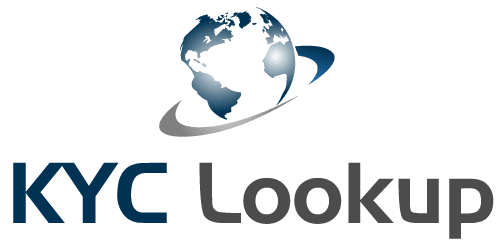21 Apr Fulfilling Your Duty: Financial Institutions’ Responsibility for Ongoing Training
Financial institutions play a crucial role in safeguarding the integrity of the financial system and combating money laundering. As gatekeepers of financial transactions, these institutions bear a significant responsibility to ensure compliance with Anti-Money Laundering (AML) regulations. Central to fulfilling this duty is the provision of ongoing training to employees, providing them with the knowledge and skills necessary to detect and prevent illicit activities effectively.
Let’s look into the importance of ongoing AML training and courses for financial institutions and how partnering with KYC Lookup can facilitate compliance and foster a culture of responsibility in the industry.
The Imperative of Ongoing Training in Financial Institutions
Regulatory Mandates: Regulatory authorities impose stringent requirements on financial institutions to implement robust AML compliance programs, including regular training for employees. Ongoing training ensures that employees remain up-to-date with regulatory changes, emerging risks and evolving money laundering techniques.
Risk Mitigation: Money laundering poses significant risks to financial institutions, including reputational damage, financial losses and regulatory sanctions. Ongoing training empowers employees to identify suspicious activities, conduct thorough due diligence and report potential money laundering incidents promptly, mitigating these risks effectively.
Professional Development: Beyond regulatory mandates, ongoing training contributes to the professional development and career advancement of employees within financial institutions. By investing in training and skill enhancement, institutions demonstrate their commitment to employee growth and success, fostering loyalty and engagement among staff members.
Key Components of Effective AML Training and Courses
Comprehensive Curriculum: AML training and courses should cover a broad range of topics, including regulatory requirements, risk assessment, customer due diligence, transaction monitoring and reporting obligations. The curriculum should be tailored to the roles and responsibilities of employees within different departments of the institution.
Interactive Learning: Engaging and interactive training methods, such as case studies, simulations and practical exercises, enhance knowledge retention and application. Employees should have opportunities to practice their skills in realistic scenarios, reinforcing learning outcomes and preparing them to handle real-world situations effectively.
Regulatory Updates: Given the dynamic nature of AML regulations, training programs must incorporate regular updates to reflect changes in laws, regulations and industry standards. Employees should be informed promptly about regulatory developments and their implications for the institution’s AML compliance efforts.
Partnering with KYC Lookup for AML Training Excellence
How KYC Lookup Can Help:
- Tailored Training Solutions: KYC Lookup offers customised AML training and courses designed to meet the specific needs and requirements of financial institutions. Whether it’s introductory courses for new hires or advanced training for seasoned professionals, KYC Lookup provides tailored solutions to enhance AML knowledge and skills.
- Flexible Delivery Options: Choose from a variety of delivery options, including online courses, instructor-led training and self-paced modules, to accommodate the diverse learning preferences and schedules of employees.
- Expert Instructors: Learn from industry experts and experienced practitioners with in-depth knowledge of AML regulations and best practices. KYC Lookup’s instructors provide valuable insights, practical advice and real-world examples to enrich the learning experience.
- Continuous Support: KYC Lookup offers ongoing support and resources to facilitate the implementation of AML training programs within financial institutions. From program design to implementation and evaluation, KYC Lookup is committed to supporting institutions every step of the way.
Promoting AML Responsibility and Compliance
In conclusion, financial institutions have a responsibility to provide ongoing training to employees as part of their commitment to combatting money laundering and maintaining regulatory compliance. By investing in comprehensive AML training and courses, institutions not only fulfil their regulatory obligations but also promote a culture of responsibility, integrity and professionalism within the industry. Partnering with KYC Lookup enables financial institutions to enhance their AML training initiatives, ensuring that employees have the knowledge and skills necessary to detect and prevent money laundering effectively.
If interested in any of the AML Learning Solutions provided by KYC Lookup please reach out where a member of the team will be happy to assist you and provide further information on how KYC Lookup can become your trusted AML training partner.



No Comments